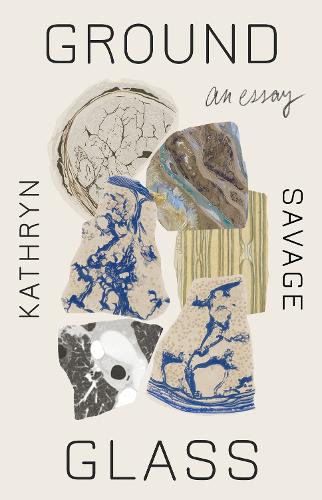
Groundglass
(Paperback)
Publishing Details
Groundglass
By (Author) Kathryn Savage
Coffee House Press
Coffee House Press
8th November 2022
United States
Classifications
General
Non Fiction
814.6
Physical Properties
Paperback
128
Width 127mm, Height 196mm
Description
Could there be something humbling and revolutionary in understanding myself as a site of contamination
Groundglass takes shape atop a polluted aquifer in Minnesota, beside trains that haul fracked crude oil, as Kathryn Savage confronts the transgressions of U.S. Superfund sites and brownfields against land, groundwater, neighborhoods, and people. Drawing on her own experiences growing up on the fence lines of industry and the parallel realities of raising a young son while grieving a father dying of a cancer with known environmental risk factors, Savage traces concentric rings of connectionbetween our bodies, one another, our communities, and our ecosystem. She explores the porous boundary between self and environment, and the ambiguous yet growing body of evidence linking toxins to disease. Equal parts mourning poem and manifesto for environmental justice, Groundglass reminds us that no living thing exists on its own.
Reviews
Like Joan Didion in The Year of Magical Thinking, Savage approaches grief by situating her thoughts within the conversations of other writers, including Terry Tempest Williams, Jacques Roubaud and Camille T. Dungy, but in so doing, her individual mourning moves quickly and fruitfully to larger discussions about how our bodies are connected to the spaces around us. . . . Savage balances the personal with research so readers can feel both why she cares and why we should. This work is a worthy reflection. Abby Manzella, Star Tribune
From Superfund sites and brownfields to polluted waters and the local industrial yard of her childhood, Savage delivers her poetic dispatches from injured places. Through memoir, essay, and reportage twined with her grief for a dying father and the challenges of early parenthood, she explores the relationships between toxicity and disease, and the unbreakable connections between people and places. Orion Magazine
Savages work in Groundglass is about bringing similar stories from disparate individuals across multiple states, linking what can feel like individual instances of industrial failure to display the systemic issues harming so many. . . . To imagine possibilities for remediation, to consider how to form communities around care for land and care for people. The work begins with looking, but it cannot end there. Julia Shiota, Belt Magazine
Savage combines memoir with environmental and social commentary in her haunting debut. . . . A work of both elegiac beauty and horror. . . . This ones tough to forget. Publishers Weekly
A lyrical exploration of grief and ecology. . . . [A] prismatic debut in the guise of a grief memoir, but the narrative encompasses ecological investigations of brownfields and Superfund sites. . . . Savage creates a compelling meditation that flows beyond the typical stylings of memoir, journalism, and theory. An interrogative, existential crisis at the center of an ongoing ecological one. Kirkus
In the midst of congressional chaos, industrial pollution, land and water contamination, bodily disease, and necessary reparations, Savages work demands we take heed and have courage, and with imagination and introspection, learn how to build again. Tara Friedman, West Trade Review
A poetic reckoning with environmental pollution and its unavoidable connection to human bodies. . . . Groundglass tenderly dissolves the perceived boundary between environment and self . . . [and] invites readers to settle into their own bodies and cultivate an ever-deepening awareness of the spaces they occupy. Lillie Gardner, EcoLit Books
Groundglass is a work of beautylike the superfunds Kathryn Savage investigates, which green and bloom and renew despite it all. Reading Savages writing is like taking a walk beside a friend with an extraordinary eye for all the unlikely and remarkable details along the path, the ones you would have missed if you had to walk it alone. Kathryn Nuernberger
How does one build a home A family What are the ways they might come apart I myself grew up within winds distance of Love Canal. In times marked by Chernobyl, Fukushima, by fracking and spills, compromised air and water, the relationship between toxicity and the bloodstream feels intimate and immediate. This probing book asks the hard questions in a compelling blend of memoir, essay, biography, and reportage. The inside is the outside now. The outside is inside. Kazim Ali
Kathryn Savage roots down into one broken placea place most would rather overlookand listens. Here, every relationship the author tendswith herself, with her son, with the father that begot her and the neighborhood where he raised her uptwists into unsettling shapes thanks to what this land has been forced to hold. Groundglass is both a commitment and a grappling, and for that reason it will stay with me for a very long time. Elizabeth Rush
Through exquisitely honed language and poetic imagery, Kathryn Savage skillfully juxtaposes her fathers cancer with the ecological violence she witnessed at toxic Superfund sites, crafting an unflinching portrayal of the world as body. Diane Wilson
Author Bio
Kathryn Savages writing has appeared inAmerican Short Fiction, Ecotone Magazine,theVirginia Quarterly Review, BOMB,and the anthologyRewilding: Poems for the Environment. Recipient of the Academy of American Poets James Wright Prize, she has received support from fellowships and residencies including the Bread Loaf Writers Conference, Minnesota State Arts Board, Ucross Foundation, and Tulsa Artist Fellowship. She lives with her family in Minneapolis and teaches creative writing at the Minneapolis College of Art and Design.
